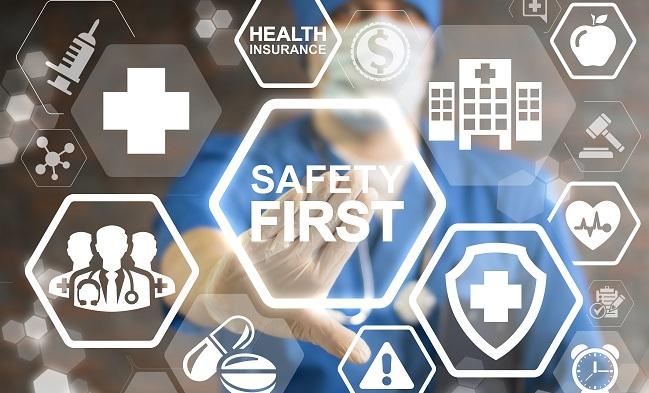Cath Lab Hazards: Combat Them With Knowledge
In addition to gaining technical and procedural skills, fellows should learn about the occupational hazards of their chosen fields.

My wife will be the first to tell you of the displeasure she feels related to my radiation exposure in the cath lab. We’ve talked about it at an increasing frequency since I started interventional fellowship, and she recently told me something that really stuck with me when I was hesitant to write about occupational hazards in a blog post given that there has been so much already published (see here, here, and here for starters). My issue with radiation is analogous to the issue of racial discrimination, she said. Basically, even though countless books have been written and innumerable debates and speeches given to highlight and bridge racial disparities, all of this literature has not ended the problem. Not enough has been said about something if it is still an issue.
While you may feel like you’ve heard everything there is to hear about occupational hazards in the cath lab, humor me and read one more article. Here, in my opinion, are five of the most important potential dangers we need to pay better attention to.
1. Radiation Exposure
We hear stories of interventionalists being diagnosed with brain tumors, cataracts, and other radiation-related maladies. We wear two badges to measure our exposure in the cath lab, yet don’t seem to modify our radiation practices based on their feedback: it is neither visible nor immediate. At my institution, we sometimes joke that we would be much more cognizant of radiation if only we could see or feel it. But why couldn’t we develop a more tangible system—a lead apron perhaps that turns from green to shades of orange and then red with increasing radiation exposure?
In the meantime, it’s important for interventional fellows to develop good habits for radiation protection in every single case so that they become second nature. Among other things, we should be using appropriate protective gear including shin guards, lead caps, and protective eye glasses; become familiar with fluoroscopy equipment settings that enable reduced radiation use; focus on reducing the distance between the image intensifier and the patient before stepping on the fluoro pedal; and learn proper positioning of the lead shield between us and the patient. A culture shift is needed from the top down, where hospital administrators are as concerned with our radiation exposure as they are with infection control practices, and we should encourage this. Further, interventional fellowship training needs a continual focus on best radiation practices. Every attending should strive to be a role model for fellows on these habits.
2. Orthopedic Issues
The last time you heard an interventionalist complain about back pain was likely very recently. Plenty of operators end up having to switch careers because of the toll lead protection takes on our muscles and bones. You may consider yourself fit, but chronic back pain can defeat even the strongest and youngest of us. A friend who has only been in practice for the last 2 years told me not long ago that he is already having back pain issues.
Innovation is truly needed in this area. We’ve seen some systems, such as robots and suspended lead, try to kill two birds with one stone by reducing both radiation exposure and the physical toll of being in the cath lab, but those are still niche technologies that have not been widely adopted. For now, we need to prioritize taking care of ourselves by wearing lead with back support, doing regular back exercises like weight training and stretching, and going for regular massages.
3. Blood Exposure
Needle sticks, glove perforations, blood or blood-stained equipment flying onto your forehead—these situations are not as uncommon as you may think. As an interventional fellow, consider developing your feel of wiring and vessel feedback wearing two sets of gloves (one indicator glove and one regular), make sure your eye protection is always on, and don’t hesitate to change gloves or even descrub, wash, and rescrub if there is a potential breach of protection.
4. Stress
Working in the cath lab is fun, but complications do happen and they can be very stressful. A supportive nurturing environment is absolutely essential both in and out of the cath lab. You should feel free to openly discuss complications with colleagues, not only regarding their technical aspects but also how they made you feel. Likewise, before commenting on how another’s complication could have been avoided, identified, or managed differently, start by saying something to your colleague like: “Hey, this could have happened to any of us.” It could go a long way.
Remind yourself from time to time that you are part of a community, and that at one point or another we will all likely be stressed and in need of empathy. We all also need personal avenues of stress relief, whether it’s reading, watching sports or movies, going out with family and friends, exercising, hiking in nature, or meditating.
5. Personal Time
We work long hours, are beholden to overnight and weekend call, and juggle multiple work-related responsibilities. In all of this, family may easily slip in importance compared with work, even if you’d like to think that could never happen. Could both our patients and our families live on the same prioritization plane? I’m really not sure, but we could and arguably should strive for balance. What I’m learning is that more than the amount of time I actually spend with my family, what matters most is my ability to be mindfully present with them when we do get that quality time. Specifically, this means turning off Twitter (or my phone entirely) at home, cooking dinner together and eating at the kitchen table, and playing with my son even when I come home tired. As simple as that sounds, these activities can provide meaningful family time plus personal enrichment and stress relief.
In the end, our ability to provide care to our patients and have a successful interventional career is intricately linked with taking care of ourselves both in and out of the lab. That’s another message worth repeating.
2018-2019 Fellow Talk Blogger
Ankur is an interventional cardiology fellow at the University of Texas Southwestern (Dallas). Born in India…
Read Full Bio

amelia harry